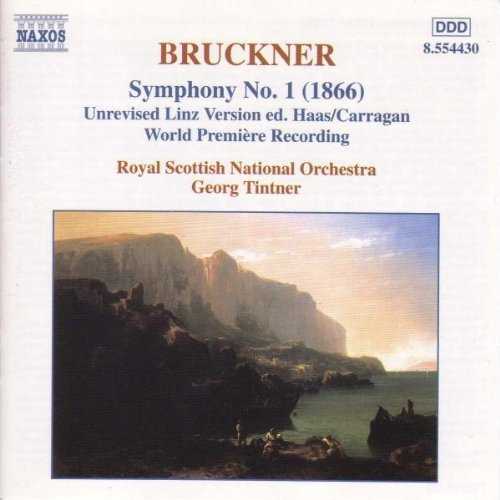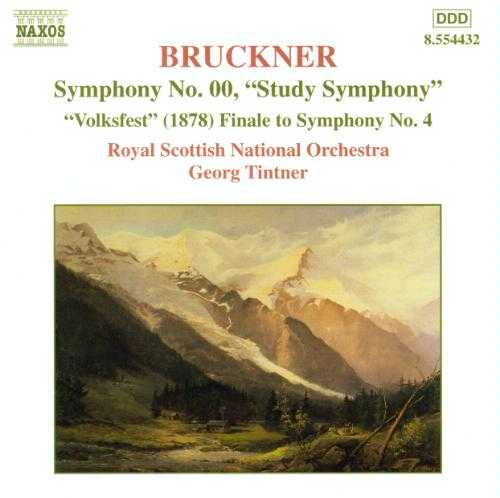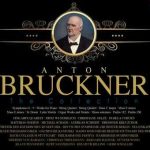
Composer: Anton Bruckner
Orchestra: Royal Scottish National Orchestra
Conductor: Georg Tintner
Audio CD
Number of Discs: 3
Format: FLAC (tracks+cue)
Label: Naxos
Size: 906 MB
Recovery: +3%
Scan: yes
# Symphony No. 1 in C minor (“The Saucy Maid”), WAB 101 (various versions)
Composed by Anton Bruckner
Performed by Royal Scottish National Orchestra
Conducted by Georg Tintner
# Symphony No. 3 in D minor (“Wagner”), WAB 103 (various versions) Adagio
Composed by Anton Bruckner
Performed by Royal Scottish National Orchestra
Conducted by Georg Tintner
tintner_bruckner_symphony2.rar – 280.5 MB
tintner_bruckner_symphony3.rar – 356.1 MB
A visionary conductor reconsiders Bruckner
Although the First is not the most popular of Bruckner’s symphonies, it is nevertheless absorbing, not to mention tantalizing in its premonitions of the symphonies which would come later. The beginning of a new symphonic cycle can be an exciting event, and Bruckner’s First, begun so late in the composer’s life, is quite sophisticated – at least, in this highly evocative version by Georg Tintner and the excellent Royal Scottish National Orchestra.
This recording, the first of the original version from 1866, is very special, and Tintner’s illumination will be startling for those who know the symphony. Some of the harmonic changes are almost radical, given the time period. The last movement is strange enough that it will have you rethinking the composer’s work completely – no small feat. There were moments when I almost felt as if I were listening to early Schoenberg.
But small differences in the language are evident in the three prior movements as well. Without going into exhaustive harmonic detail, listening to this recording caused me to muse on how Bruckner’s path might have changed, and music history altered, if this “first draft” had received overwhelming acclaim. It might have led to even more original thoughts in the subsequent symphonies. After hearing this recording, the revised versions seem, well, more conservative.
The Royal Scottish National Orchestra sounds magnificent, and I’m not even going to qualify that comment, as some have, by comparing them with other “more Brucknerian” orchestras. What has been accomplished here is huge, and the RSNO’s beautiful, heartfelt playing must be considered in any assessment of success. They get the job done, and more so. The Naxos recording is gorgeous – one of their best – with glowing, realistic sound and the huge climaxes making a great impact.
But it is Tintner, who sadly died just as his Bruckner cycle was complete, who will be really missed. It is intriguing to imagine the heights he might have reached, had he lived to explore (and record) the symphonies further. And his liner notes – scholarly and persuasive – show us that he was a fine writer as well.
So I cannot recommend this disc highly enough, particularly for Bruckner fans – but anyone new to the composer will find it just as satisfying. All the Brucknerian hallmarks are here: the long phrases rising to ecstatic climaxes, the subtle chord progressions embarking on journeys to other keys, the glorious writing for massed choirs of instruments, especially the brass section. I only wish Georg Tintner were still alive so I could congratulate him on what he accomplished: a major addition to our understanding of this composer.



